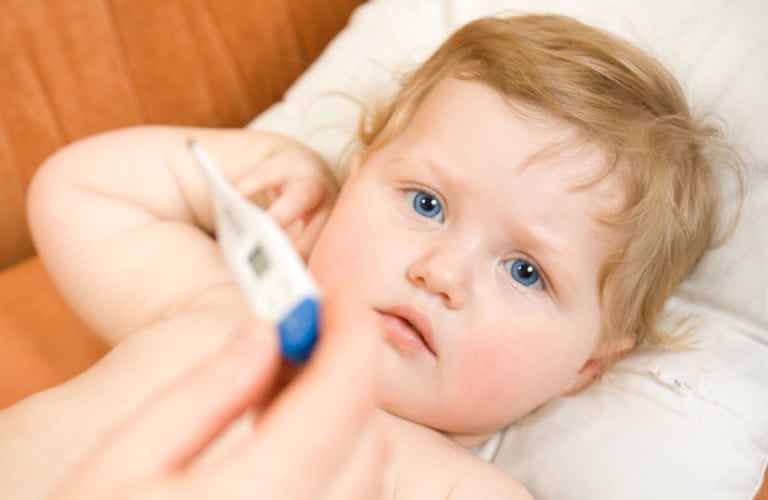Fever


What is considered a fever in children?
In general, a rectal temperature of 100.4°F (38°C) or higher is considered a fever in children. However, the specific temperature threshold for a fever may vary depending on the child's age and the guidelines provided by healthcare professionals.
What causes fever in children?
Fever is usually a response to an infection, such as a viral or bacterial illness. It can also occur as a result of other factors like immunizations, teething, or certain inflammatory conditions.
What are the common symptoms associated with fever?
Along with an elevated body temperature, common symptoms of fever in children may include flushed skin, sweating, chills, headache, muscle aches, fatigue, decreased appetite, and irritability.
How should I measure my child's temperature?
The most accurate way to measure a child's temperature is by using a digital thermometer. For infants, a rectal temperature measurement is considered the most accurate. Older children can have their temperature measured orally, under the armpit, or in the ear, depending on the type of thermometer used.
When should I be concerned about my child's fever?
You should consult a healthcare professional if your child is younger than three months old and has a rectal temperature of 100.4°F (38°C) or higher. For older children, it's recommended to seek medical advice if the fever is persistently high, accompanied by severe symptoms, or lasts longer than a few days.
How can I treat my child's fever?
Treatment of a fever in children focuses on providing comfort and monitoring for any concerning symptoms. You can give your child appropriate doses of over-the-counter fever-reducing medications such as acetaminophen (Tylenol) or ibuprofen (Advil, Motrin) as directed by the healthcare professional. Ensure your child drinks plenty of fluids and gets enough rest.
Should I wake my child up to give them fever-reducing medication during the night?
It is generally not necessary to wake a sleeping child to give them fever-reducing medication unless specifically advised by a healthcare professional. However, if your child is experiencing discomfort or their fever is causing distress, you may consider administering appropriate medication.
Can a fever cause seizures in children?
Febrile seizures, which are seizures triggered by fever, can occur in some children. They are usually brief and do not cause long-term harm. However, if your child experiences a seizure, it is important to seek medical attention for proper evaluation and guidance.
When can my child go back to school or daycare after having a fever?
Guidelines for returning to school or daycare after a fever may vary depending on local policies and the underlying cause of the fever. In general, it is recommended to wait until your child has been fever-free for at least 24 hours without using fever-reducing medications before returning to their regular activities.
Can a high fever cause brain damage?
In general, a high fever from an illness is unlikely to cause brain damage in children. However, it is important to monitor and manage the fever appropriately, provide comfort measures, and seek medical attention if your child's condition worsens or if you have concerns.
Remember, these FAQs provide general information, but it's always best to consult with a healthcare professional for personalized advice and guidance regarding your child's specific situation and fever management.
